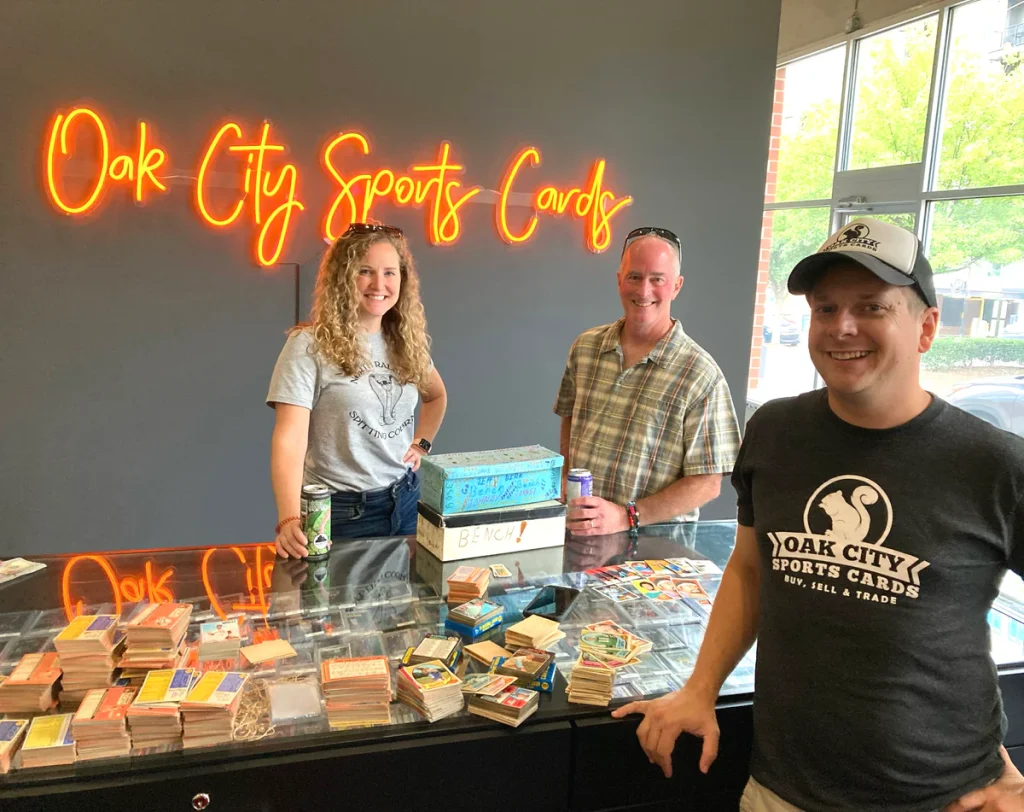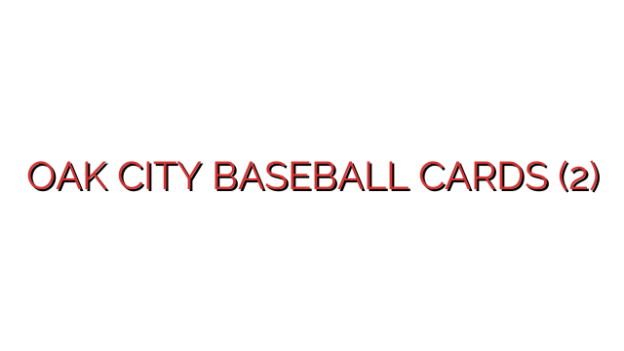New York City has played an important role in the history and development of baseball cards. As one of the early hotbeds for the sport of baseball in the late 19th century, New York saw some of the earliest baseball cards produced and distributed.
Some of the first baseball cards ever created were issued in the late 1880s by tobacco companies as promotional items to help advertise their products. In 1886, the American Tobacco Company issued a series of trade cards to promote several brands like Sweet Caporal Cigarettes and Goodwin & Company cigarettes. These early tobacco era cards featured individual players from major league teams of the time like the New York Giants and Brooklyn Bridegrooms (later known as the Dodgers).
In 1888, the Allen & Ginter Tobacco Company issued their famous N172 “Base-Ball” cards as part of a larger series of trade cards inserted into their tobacco products. This landmark set featured images of stars from several big league teams, including New York players like Tim Keefe and Roger Connor of the Giants. It is considered the first true set dedicated solely to baseball players and helped popularize the idea of collecting baseball cards as a hobby.
Throughout the 1890s, tobacco companies continued producing baseball cards as promotional incentives. In 1891, the Mayo Cut Plug Tobacco brand issued a set that included cards of New York players like Jack Doyle and George Van Haltren of the Giants. In 1892, Goodwin & Company released cards featuring more New York players like Dave Orr and Arlie Latham of the Giants and Brooklyn Grooms.
The tobacco era of baseball cards really took off in the late 1890s. In 1896, the American Tobacco Company issued cards as part of sets for brands like Sweet Caporal and Old Judge cigars. These included stars from all the major league teams, such as New York’s Hughie Jennings and Willie Keeler of the Baltimore Orioles (who later played for the Giants and Dodgers). In 1897, the National Baseball Card Company issued one of the most famous and valuable sets from this era with over 500 cards featuring players from across the majors, including many from New York teams.
The early 1900s saw the continued boom in baseball card popularity tied to tobacco products. In 1909, the American Tobacco Company released what is considered the most iconic and valuable set from this tobacco era – the famous T206 collection. Spanning over 500 cards produced between 1909-1911, the ornate and colorful T206 set included all the biggest stars from this era, including many legendary New York players like Honus Wagner, Christy Mathewson, and Walter Johnson. For decades, the rare Wagner card from this set held the record as the most valuable trading card ever sold.
As the tobacco era began winding down in the early 1910s due to new laws, candy companies stepped in to issue baseball cards as incentives. In 1914, the Chicle Company issued the famous Goudey Gum Company set with over 350 cards of major league players, including stars from New York’s Giants, Dodgers, and Yankees teams. In 1915, the Good & Plenty candy brand released a set including cards of New York players Ray Chapman and Wally Pipp.
During the 1920s, several candy companies continued producing baseball cards including the American Caramel Company, Piedmont Cigarettes, and the Goudey Gum Company, which issued three iconic sets in 1933. This Goudey collection included legendary New York players Babe Ruth, Lou Gehrig, and Bill Dickey that remain highly sought after by collectors today.
The modern era of baseball cards began in the late 1930s with the introduction of bubble gum included with cards. In 1938, the Bowman Gum Company issued the first modern gum-and-card set that included stars from all the major league teams, such as New York’s Red Ruffing and Earle Combs. This helped spark a new golden age of baseball card collecting among children and adults alike.
In the post-World War II era of the late 1940s-1950s, card companies like Topps, Bowman, and Fleer issued iconic sets that captured the stars of this generation, including legends like Jackie Robinson, Mickey Mantle, and Yogi Berra who all played for New York teams. The 1952 Topps set is considered one of the most significant issues ever for its color photographs and inclusion of rookie cards for future Hall of Famers like Willie Mays.
The 1960s saw Topps dominate the baseball card market and produce memorable sets like their 1965 issue, the first to feature player names on the front of cards. Icons like Willie McCovey and Tom Seaver had their rookie cards in this classic set. In 1969, Topps even issued a special New York Mets World Series Champions set to commemorate the “Miracle Mets” first title that year.
In the 1970s, Topps continued to innovate with new photography and inclusion of statistics on the back of cards. Rookie cards in the 1970s included future legends like Thurman Munson and Ron Guidry of the Yankees. The 1970s also saw the rise of the hobby of collecting cards as a serious endeavor, with rare vintage cards from the tobacco and gum eras reaching new heights in value.
The 1980s saw new competitors enter the baseball card market like Donruss, Fleer, and Score. These companies helped drive innovation in card design and technology. Iconic New York players of this generation like Dwight Gooden and Darryl Strawberry had their rookie cards issued during this decade. The late 1980s also marked the peak of the speculative bubble in the baseball card market that eventually led to its crash in the early 1990s.
While the baseball card market contracted significantly in the 1990s and 2000s due to overproduction and loss of kid collectors, New York players continued having their rookie cards issued in sets from Topps, Upper Deck, and other companies. Future stars like Derek Jeter had their first cards released during this era. Card companies also began experimenting with parallel and insert sets featuring short prints and autographs of stars to entice adult collectors.
Today, the baseball card market has stabilized and remains popular among both kid and adult collectors. Iconic players from the New York Yankees and Mets still have their rookie cards featured in annual sets from Topps, Panini, and others. Vintage cards from the early tobacco and gum eras continue appreciating greatly in value, with rare examples of Honus Wagner, Mickey Mantle, and Babe Ruth considered the crown jewels of any collection. New York City also hosts several large annual sports card and memorabilia shows that are major destinations for collectors.
Overall, New York City played a pivotal role in the development and popularity of baseball cards over the past 130+ years. As a hotbed for the sport of baseball since the late 1800s, New York saw some of the earliest cards produced featuring its star players from the Giants, Dodgers, and Yankees. Many of the most iconic and valuable vintage cards ever issued featured these New York legends. Today, collecting cards of past and present New York greats remains an integral part of the rich history and ongoing hobby of baseball card collecting.




